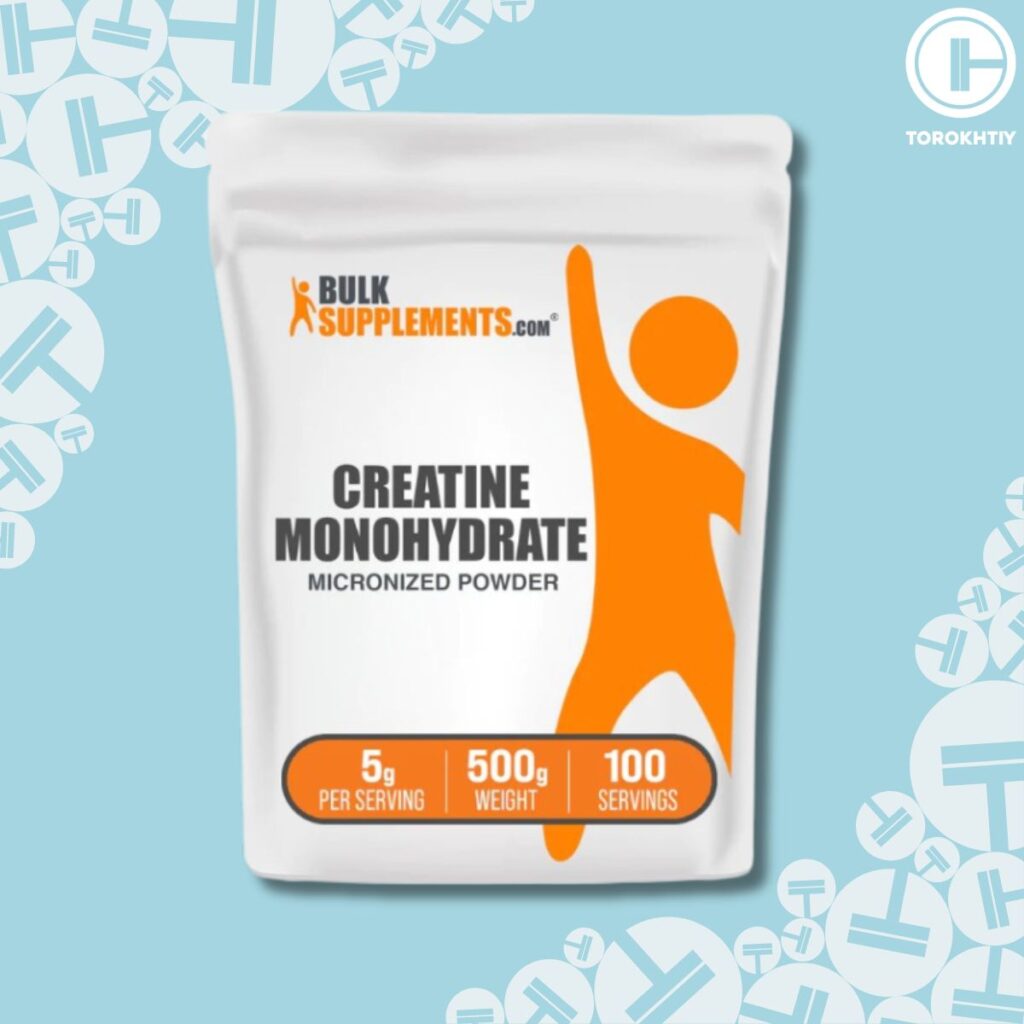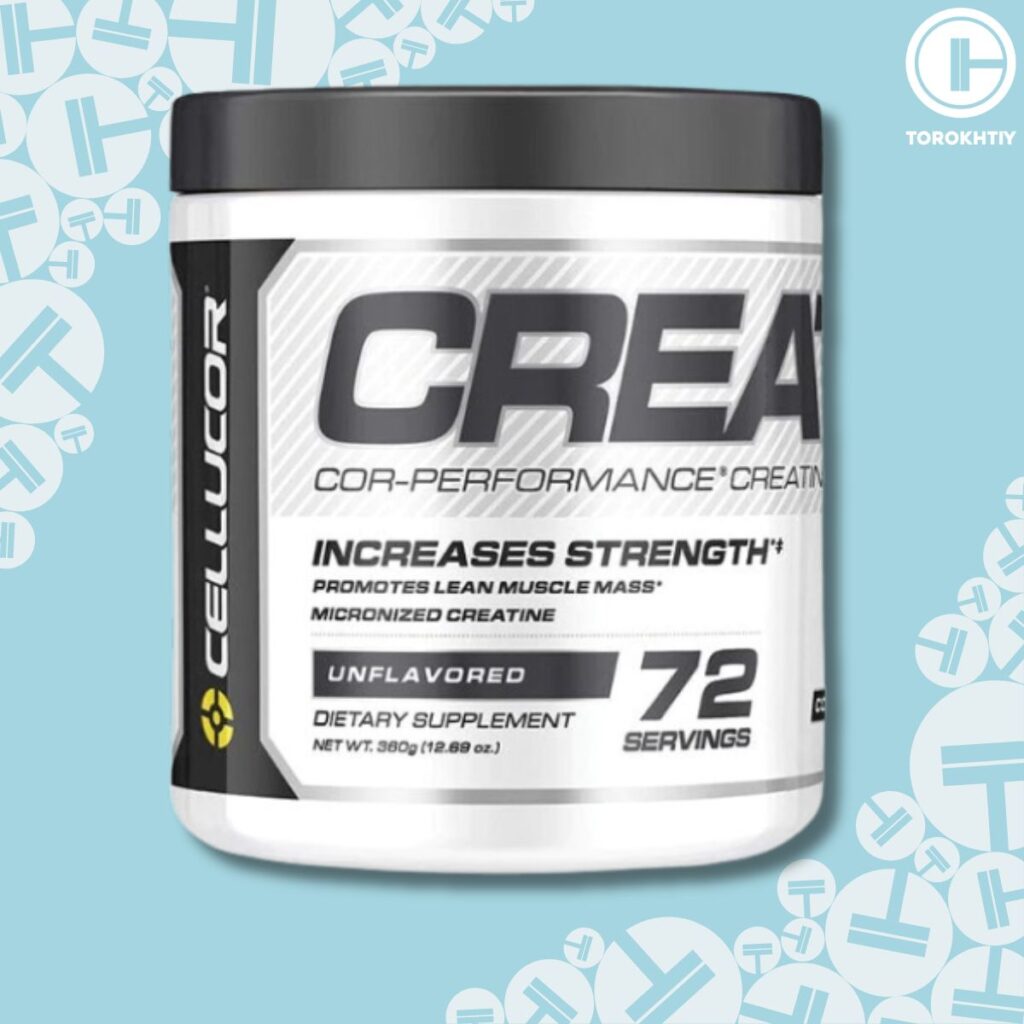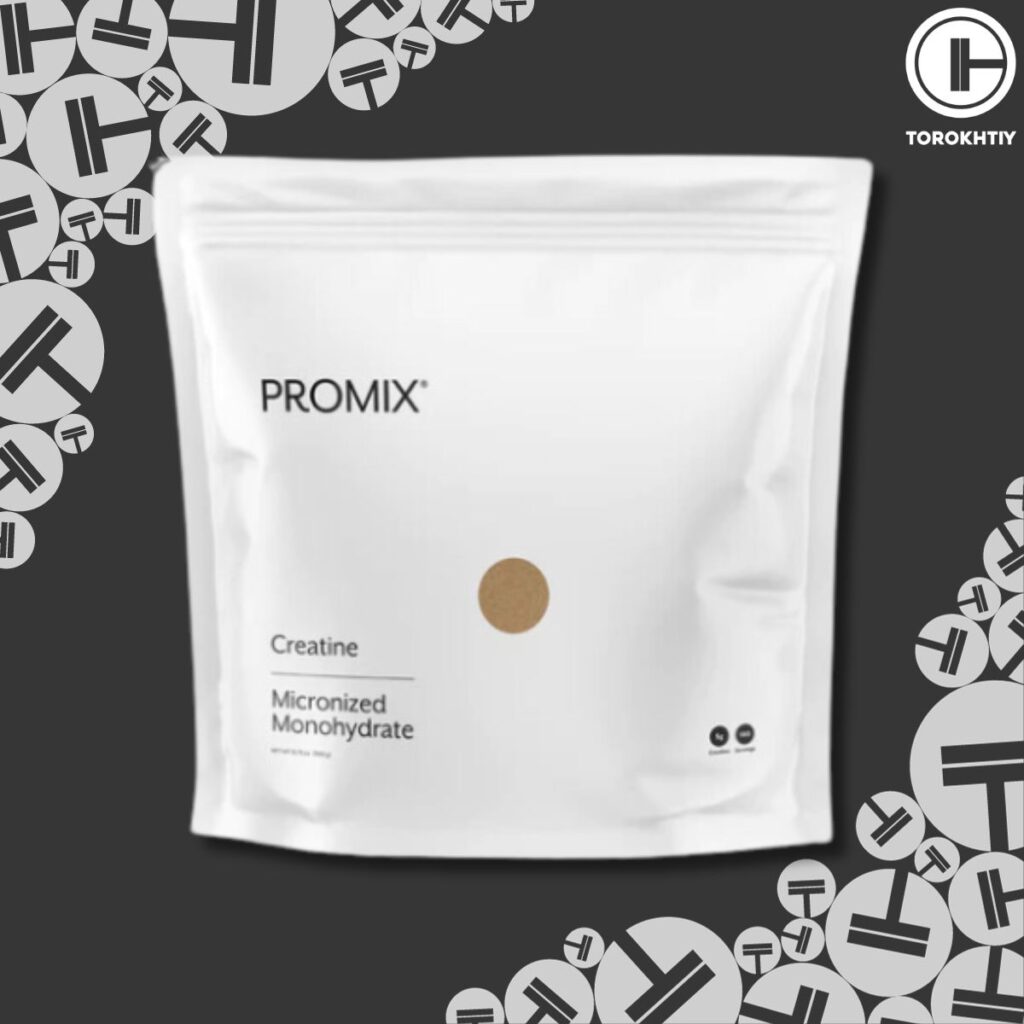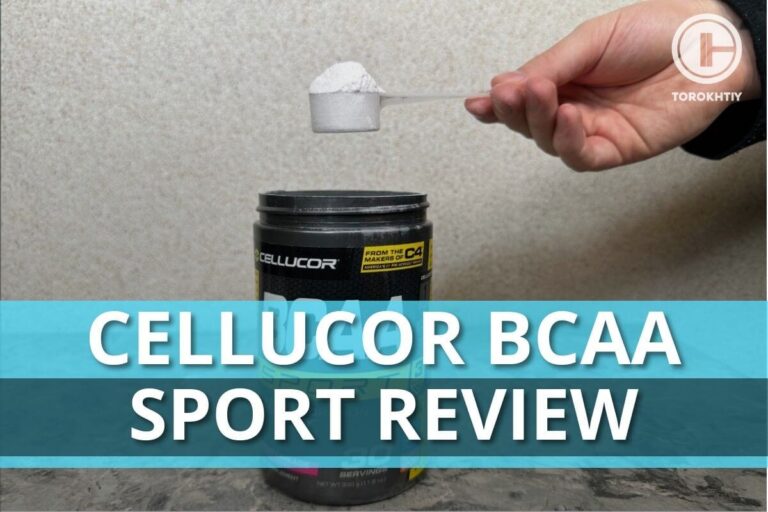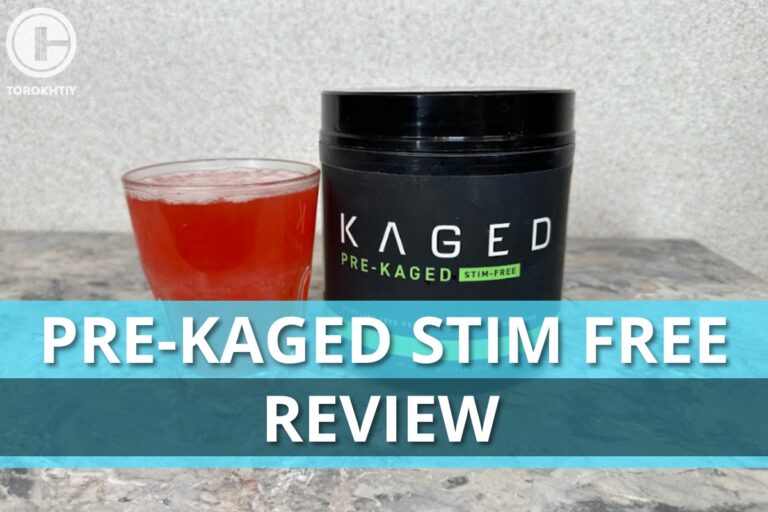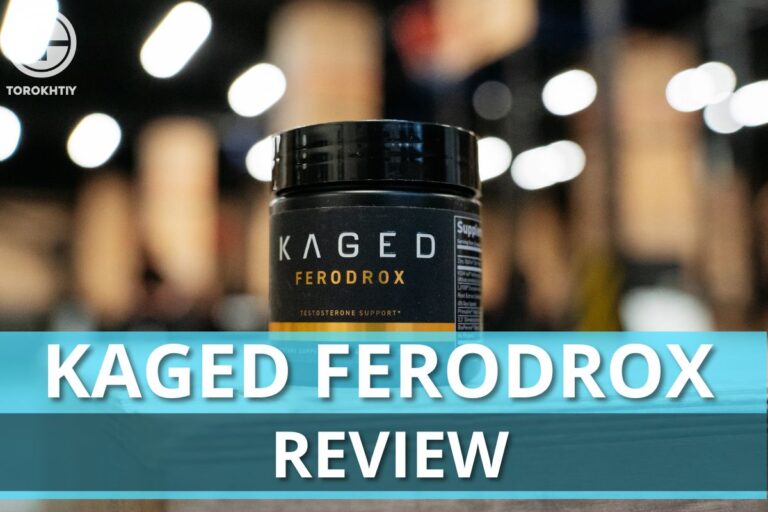Bulk Supplements Creatine Review (2026)
When it comes to creatine, there’s no debate as to its host of performance benefits. Countless studies have shown improvements in several outcomes following daily ingestion.
Bulk Supplements sell a huge range of products, offering them at excellent price points when bought in large amounts. Our Bulk Supplements Creatine review looks at their creatine monohydrate power in detail below.
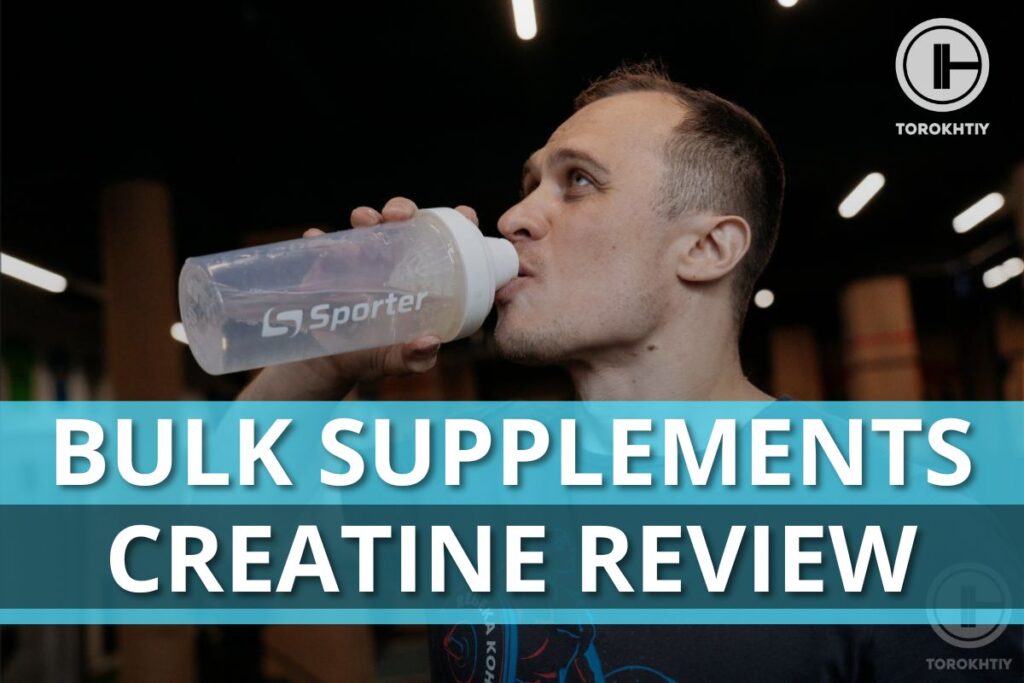
Bulk Supplements Creatine Review Quick Summary
Bulk Supplements Creatine Monohydrate
- Form: Powder
- Type: Micronized Creatine Monohydrate
- Other Ingredients: N/A
- Servings per Container: 100
- Serving Size: 5 grams
- Price per Serving: $0.22
- Suitable for Vegans: Yes
- Company Founded: 2012
- Recommended by Athletes: Ryan Fields, Vanessa Severson, Jonny Diez
Founded in 2012, Bulk Supplements supplies large bulk ingredient powders to many consumers and manufacturers. They aim to provide excellent customer service and product quality for all consumers, with all their ingredients manufactured in cGMP facilities. All their supplements are third-party tested before distribution.
The Bulk Supplements Micronized Creatine Powder offers 5 grams of pure creatine monohydrate in each serving, with no added ingredients. This means it contains zero calories or macronutrients. Each serving is gluten-free, sugar-free, soy-free, and dairy-free.
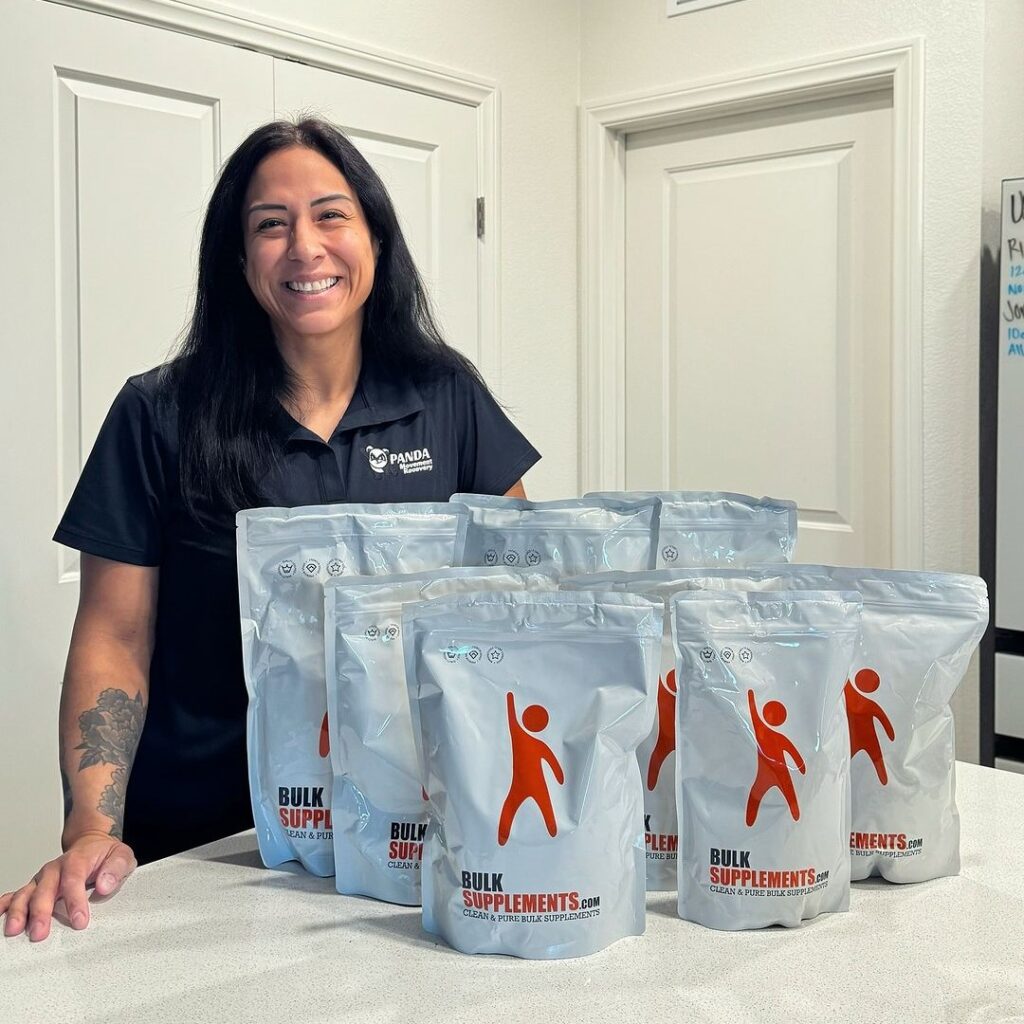
Bulk Supplements has manufactured the powder in their cGMP facilities, using third-party testing to confirm ingredient purity. The Micronized Creatine Monohydrate is available as capsules or powder, with options from 250 grams to 25 kilograms.
Each serving costs $0.22, with Bulk Supplements offering an additional 10% off with their subscribe and save option.
The Bulk Supplements Micronized Creatine Powder offers 5 grams of pure creatine monohydrate in each serving, with no added ingredients.
Positives:
Could be better:
Who and What is the Bulk Supplements Creatine Monohydrate for?
Creatine is one of the most extensively researched ergogenic aids in the world. The results of countless scientific studies have shown improvements in muscle growth, strength, high-intensity exercise performance, and aspects of cognition (note that more research is needed to confirm this last benefit).
Different types of creatine are commonly added to pre-workouts or sold as stand-alone creatine supplements. The main types include:
- Creatine Monohydrate
- Creatine Ethyl Ester
- Creatine Hydrochloride
- Creatine Nitrate
Creatine is naturally produced in your body. Your liver, pancreas, and kidneys can produce approximately 1 gram per day. Creatine is stored in skeletal muscle as phosphocreatine and is primarily used for energy production during exercise.
Unfortunately, the amount produced by our body isn’t enough to fully saturate our phosphocreatine stores which means daily supplementation can enhance function. Whilst creatine is also contained in foods such as red meat, seafood, and eggs, the amount needed from food would be highly impractical and at times impossible. Supplementing with creatine powders provides a quick and easy way to hit your daily creatine intake targets to fully saturate your phosphocreatine stores and provide a host of performance benefits.

The Bulk Supplements Creatine contains micronized creatine monohydrate. This is the most widely-researched form of creatine showing proven performance benefits and also has a smaller molecular size which makes it more bioavailable.
The Bulk Supplements Creatine contains 5 grams of micronized monohydrate per serving. With this, these are the types of athletes and specific situations in which consumption would be warranted:
- Bodybuilding athletes looking for improvements in muscle mass
- Powerlifting athletes looking for improvement in their strength levels
- Endurance athletes wanting to improve their anaerobic exercise performance
- Any type of athlete in a caloric deficit who is looking for supplements to preserve performance
- The general population looking for improvements in health and wellbeing
- Older populations who want to improve aspects of their cognition (research is still needed to confirm this)
- Anyone looking for a source of creatine monohydrate that offers excellent value for money
- Anyone looking for a pure source of creatine monohydrate with no added ingredients
- Anyone looking to purchase their creatine monohydrate in bulk
Bulk Supplements Creatine Review
We’ve done one of the most detailed Bulk Supplements Creatine Monohydrate Reviews so you can decide whether it's a worthwhile investment or a waste of money. Let’s take a look at it in more detail.
1. Ingredient Breakdown
The only ingredient in the Bulk Supplements creatine is five grams of micronized creatine monohydrate. That’s it! No calories, sweeteners, flavors or added ingredients. With the Bulk Supplements power, what you see on the front of the pouch or tub is what you get.
In terms of dosage, the 5 gram serving is at the higher end of the suggested maintenance dose according to research. It also fits well with the 4 x 5 gram loading protocol suggested if you’re looking to saturate your phosphocreatine stores at a faster rate.
The creatine monohydrate is micronized which basically means it has a smaller molecular size. This increases its bioavailability which in theory should make the creatine more effective.
Bulk Supplements state that each serving is gluten-free, dairy-free, soy-free, and sugar-free. It’s basically everything-free except creatine monohydrate.
If you’re looking for a pure source of creatine monohydrate without any added bells and whistles, the Bulk Supplement creatine powder really hits the mark.
2. Nutrition Label Transparency
As far as nutrition label transparency, Bulk Supplements is pretty good across the board with their product labeling and testing process.
Even though it does contain only one ingredient, Bulk Supplements provide a nutrition label listing the serving size, amount of creatine, nutritional facts, and dosing instructions.
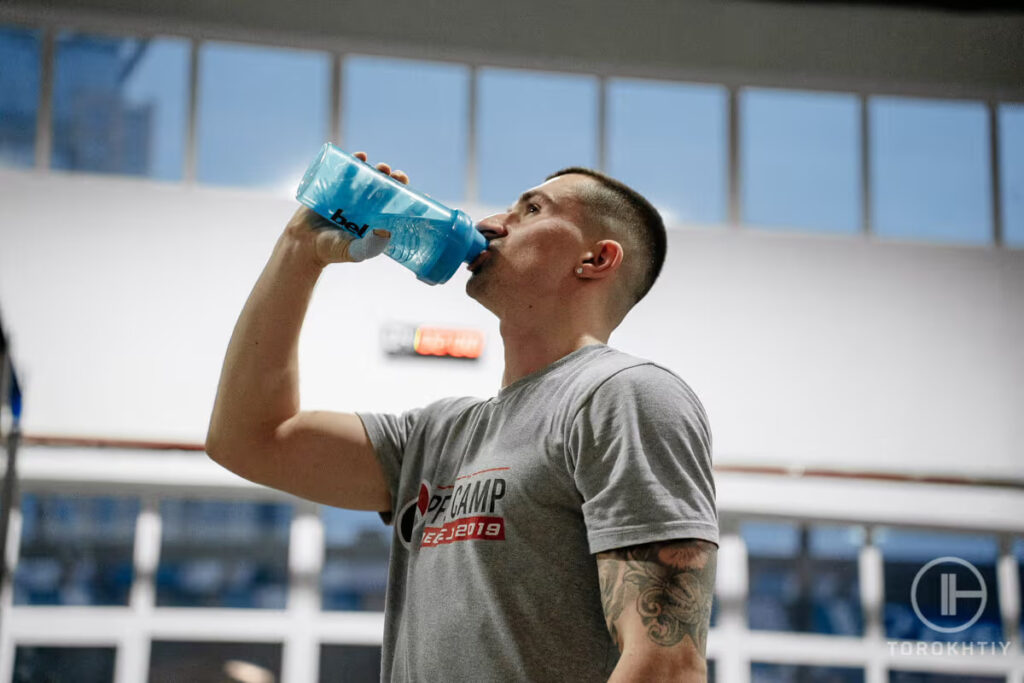
All the Bulk Supplement products are produced in cGMP and NSF-certified facilities, with all their products undergoing third-party testing before being sold.
On their website, they claim to run tests looking at heavy metals, ingredient purity, possible contaminants, and potency. They also look at particle size, pH, and density.
The overall quality and rigorous testing process is a huge plus if you’re a tested performance athlete looking for a pure creatine monohydrate supplement that doesn’t break the bank.
3. Solubility
Whilst it isn’t as soluble as creatine hydrochloride, the creatine monohydrate used by Bulk Supplements is micronized which means it’s more soluble than otherwise.
When looking at user reviews, the vast majority of people report that it mixes well with cold water and is actually flavorless meaning it’s great as part of a protein shake or pre-workout.
4. Value for Money
Now this is where the Bulk Supplements creatine powder really hits a home run. At just $0.22 per serving, you really can’t get 5 grams of micronized creatine monohydrate at a much cheaper price.
Bulk Supplements stays true to its name by offering pouch sizes from 250 grams all the way up to 25 kilograms. If we go with five grams a day, this would give you 5000 days of creatine supply which is nearly 14 years!
5. Overall Opinion
The Bulk Supplements Micronized Creatine Monohydrate is a no nonsense supplement that contains one ingredient and comes at an excellent budget-friendly price point. It can be purchased in huge quantities which is something most other brands don’t offer. We think it’s a great option for those who prefer something simple that gets the job done.
How Do You Use Bulk Supplements Powder?
When looking at the correct creatine doses for different age groups and populations, it’s important to note that the effects of creatine supplementation are cumulative. In simple terms, this means that the phosphocreatine stores in our body build up progressively until they are fully saturated. After this point, a daily maintenance dose is sufficient to keep our phosphocreatine stores adequately topped up.
The only noticeable difference between different creatine loading protocols is the time taken to fully saturate your body’s phosphocreatine stores before switching to the maintenance dose. The right initial dosing schedule will primarily depend mainly on preference and individual response.
In summary, different creatine methods can be used to achieve the same end result. With this, the timing of creatine supplementation also doesn’t matter. Focus should be placed on maintaining a regular daily intake suited to your daily lifestyle.
The two main creatine dosing methods commonly employed are as follows:
- Loading + Maintenance phases
- Consume 20 grams per day for five days split into 4x 5 gram doses. These should be spread evenly throughout the day to limit potential gastrointestinal distress
- On the sixth day, switch to a daily maintenance dosage of 3-5 grams for as long as you desire
- Maintenance phase only
- Consume 3-5 grams daily without performing the prior loading phase. Continue the dosage for as long as desired.
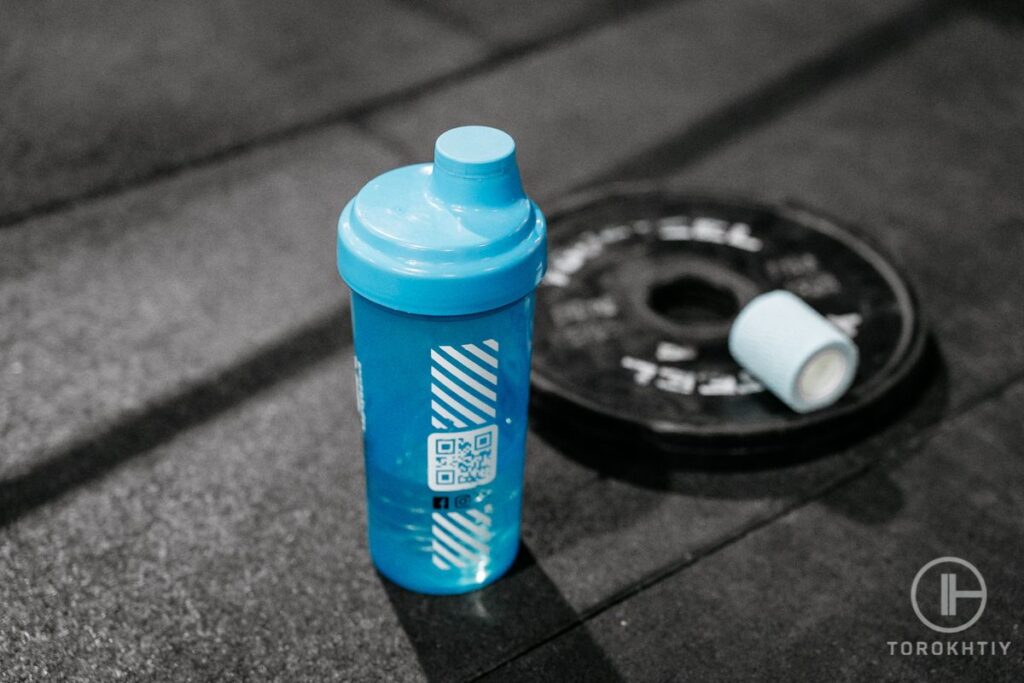
Regardless of your training status, age, and gender, your creatine dosing protocol should follow the guidance above. For younger adults wanting to start creatine supplementation or older adults with underlying health issues, consult a sports nutritionist first.
The 5-gram dosage used in the Bulk Supplements powder is the perfect amount for both the loading and maintenance phases. Mix the powder into cold water, juice, or as part of a pre-workout or protein shake if desired. Ensure all the powder is dissolved before consuming.
Bulk Supplements Creatine Alternatives
In order to provide an objective review, we’ve compared the Bulk Supplements Creatine to two popular alternatives below. We’ve looked at the main differences to help you choose the correct powder for your exercise goals.
1. Bulk Supplements Creatine vs Cellucor
Cellucor COR-Performance Creatine
- Form: Powder
- Servings per Container: 72 Servings
- Type: Micronized Creatine Monohydrate
- Suitable for Vegans: Yes
- Other Ingredients: None
- Price per Serving (5 grams): $0.42
- Company Founded: 2009
- Recommended by Athletes: Demi Bagby, Scott Mathison, Justin Fields
Both the Bulk Supplements Creatine and Cellucor COR-Performance Creatine contain 5 grams of Micronized Monohydrate in each serving with no added ingredients. Both supplements are also gluten-free, soy-free, and dairy-free.
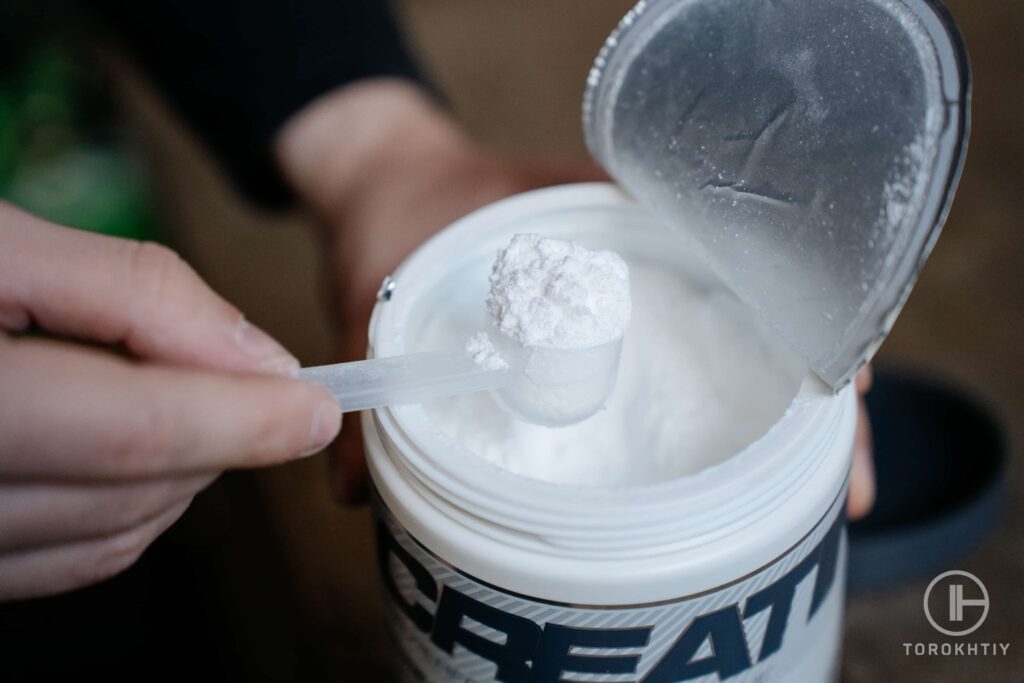
Whilst both have been manufactured in cGMP facilities, the Cellucor COR-Performance Creatine is not third-party tested. In terms of price per serving, the Cellucor Creatine is also considerably more expensive at $0.42. Bulk Supplements offer a much bigger powder size range and also offer creatine capsules if you prefer.
2. Bulk Supplements Creatine vs Promix
Promix Creatine Powder
- Serving Size: 1 scoop (5g)
- Servings per Container: 180
- Amount of Creatine Monohydrate per Serving: 5 g
- Recommended By Athletes: Leslie, Dr. Bo San Diego Chiropractor
Like Bulk Supplements, the Promix Creatine Powder contains 5 grams of Micronized Creatine Monohydrate as the main ingredient. Both contain no added ingredients with zero calories or sugar. Both products are also non-GMO and feature third-party testing.

Both companies offer different powder tub sizes, with Bulk Supplements giving you a far bigger range and also offering a capsule-based option. In terms of value for money, the Promix powder is slightly more expensive at $0.29 per serving compared to $0.22 for the Bulk Supplements powder.
FAQ
Is Bulk Creatine Good Quality?
The Bulk Supplements Creatine uses micronized monohydrate that has been manufactured in a cGMP facility and undergone third-party testing before being sold to the consumer. For these reasons, the Bulk Supplements Creatine can be considered a good quality supplement.
Is Bulk Supplements Creatine NSF Certified?
On the Bulk Supplements website, the company states that all its products are produced in an NSF-certified and FDA-registered cGMP-compliant facility. For these reasons, we can say that the Bulk Supplements Creatine is NSF certified, however, there's no mention of this on the specific product page.
Is Bulk Supplements Third-party Tested?
The Bulk Supplements Creatine Monohydrate power has been third-party tested for ingredient purity. Whilst Bulk Supplements states this on the product page, they provide no mention of the specific testing organization.
Conclusion
The Bulk Supplements Creatine uses micronized monohydrate as the sole ingredient, giving you a pure form of creatine that contains exactly what it says on the front of the packet. It offers extremely good value for money, with Bulk Supplements offering bag sizes up to 25 kilograms for those who want a lifetime supply!
Whilst it is manufactured in a cGMP facility and third-party tested, Bulk Supplements could further improve their labeling by providing the name of the testing organization. Overall, it's well worth the small investment if you’re looking for a pure form of creatine to add to your supplement stack.
What do you think of Bulk Supplements? Have you used their creatine before? Let me know about your experiences in the comments section below.
Also read:
- Why Does Creatine Make My Stomach Hurt
- Beta Alanine vs Creatine
- Does Creatine Make You Poop
- Does Creatine Have Calories
- Does Creatine Give You Energy
References
- Joao P. Nunes, Alex S. Ribeiro, Brad J. Schoenfeld, Crisieli M Tomeleri, Ademar Avelar, Michele CC. Trindade, Hellen CG. Nabuco, Edilaine F. Cavalcante, Paulo S. Junior, Rodrigo R. Fernandes, Ferdinando O. Carvalho, Edilson S. Cyrino, “Creatine supplementation elicits greater muscle hypertrophy in upper than lower limbs and trunk in resistance-trained men” Journal of Nutrition and Health 23, no.4 (2017):223-229. doi:10.1177/0260106017737013
- Scotty Mills, Darren G. Candow, Scott C. Forbes, J. P. Neary, Michael J. Ormsbee, Jose Antonio, “Effects of Creatine Supplementation during Resistance Training Sessions in Physically Active Young Adults,” Nutrients 12, no.6 (2020):1880. doi:10.3390/nu12061880
- Eric S. Rawson, Andrew C. Venezia, “Use of creatine in the elderly and evidence for effects on cognitive function in young and old,” Amino Acids 40, no.5 (2011):1349-1362. doi:10.1007/s00726-011-0855-9
- Uwe Schlattner, Malgorzata Tokarska-Schlattner, Theo Wallimann, “Mitochondrial creatine kinase in human health and disease,” Biochim Biophys Acta 2 (2006):164-180. doi:10.1016/j.bbadis.2005.09.004
- Alireza Naderi, Erick P. de Oliveira, Tim N. Ziegenfuss, Mark T. Willems, “Timing, Optimal Dose and Intake Duration of Dietary Supplements with Evidence-Based Use in Sports Nutrition,” Journal of Exercise and Nutritional Biochemistry 20, no.4 (2016):1-12. doi:10.20463/jenb.2016.0031
Why Trust Us?
With over 20 years in Olympic Weightlifting, our team does its best to provide the audience with ultimate support and meet the needs and requirements of advanced athletes and professional lifters, as well as people who strive to open new opportunities and develop their physical capabilities with us.
All products we select are primarily approved and tested by the Olympic Weightlifting Champion Oleksii Torokhtiy. Under his guidance, we provide honest and reasonable assessments of the products we review by checking their characteristics, packaging, design, comfort and durability features, and general product rating. We select products from only high-quality and trusted sports brands, thus vouching for their quality.
The product testing process is described in more detail here
Author: David Sasha Schulz
Doctor of Chiropractic, BSc Human Biology, CSCS
Strength coach (CSCS) – 10 years
Sasha is a Chiropractor and Kinesiologist practicing in Kelowna, BC, Canada. He has been practicing Chiropractic since 2019, integrating manual therapy, strength training and programming principles, and nutritional strategies to get his patients optimal results. He currently scratches the competitive itch in fitness, and the occasional endurance race, and plays golf and snowboards for fun. He has an interest in all strength and fitness-related sports.

